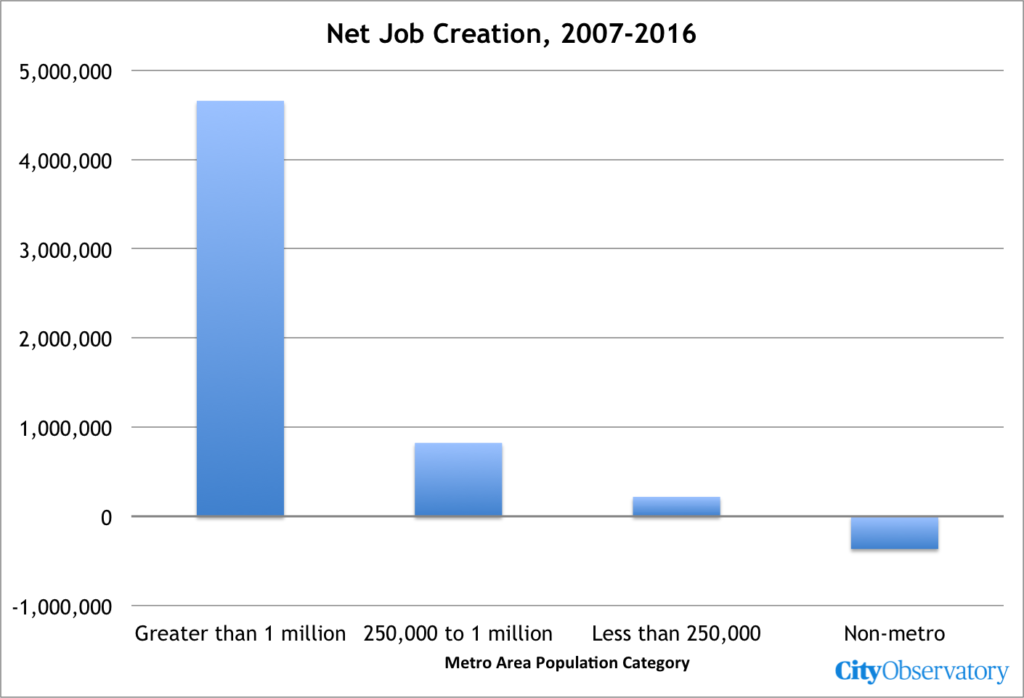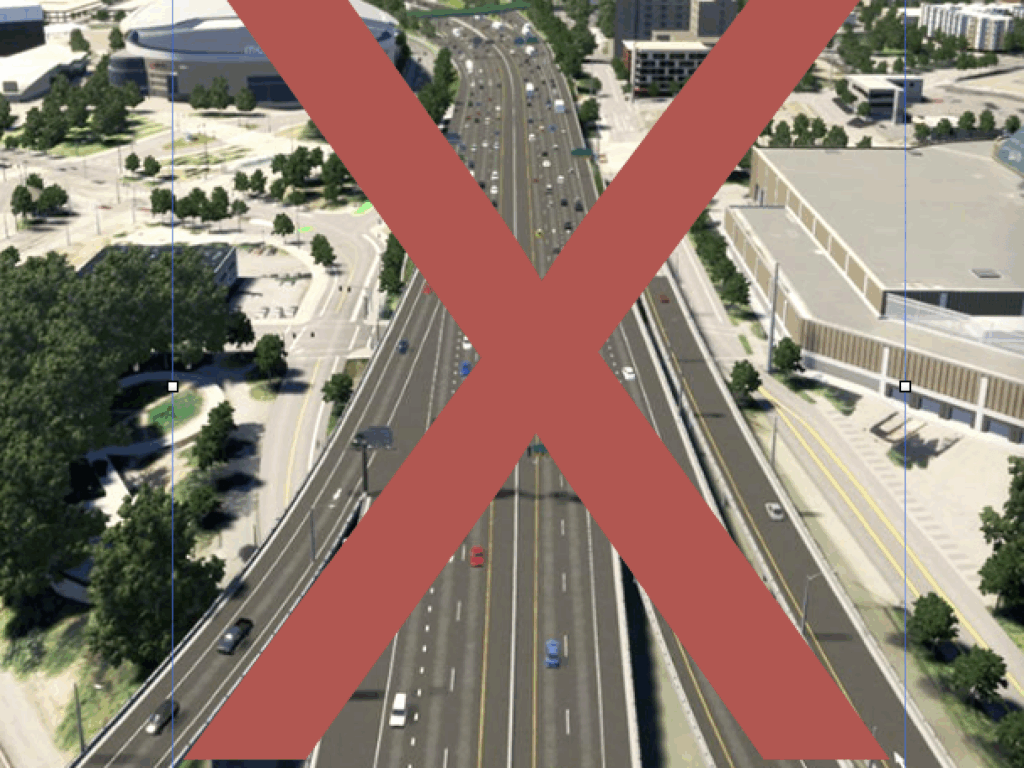New York Times columnist Russ Douthat got a lot of attention a few days ago for his Johnathan Swiftian column–”Break up the liberal city“–suggesting that we could solve the problems of lagging economic growth in rural and small town America by whacking big cities into pieces and spreading their assets more widely. Douthat views himself as a latter day Teddy Roosevelt, busting up the big concentrations of urban power, the way Roosevelt took on Standard Oil. Simply put, this is one of the most spectacularly wrong-headed policy prescriptions for economic development that has ever been offered. Far from spreading wealth, diminishing cities would actually destroy value and make the nation worse off.
Cities don’t extract rent, they create value
Douthat’s reasoning is based on a simplistic zero sum view of economic assets like industries and universities: cities have somehow unfairly monopolized the nation’s wealth, and we ought to redistribute it. The implied analogy here is to anti-trust law: cities have somehow cheated to monopolize resources. What this misses is that cities actually create value through increasing returns, what economists call agglomeration economies. People in cities are more productive, more innovative, and have higher skills because they live in cities. Absent cities, the innovation and productivity upon which these industries depend for their success, they simply wouldn’t exist. As Ed Glaeser told the Washington Post:
“Cities enable workers to search over a wider range of firms, and to hop from one firm to another in case of a crisis. They enable service providers to reach their customers, and customers to access a dizzying range of service providers. Perhaps most importantly they enable the spread of ideas and new information. . . . cities are forges of human capital that enable us to get smart by being around other smart people.”
Economists have come to widely embrace the view advanced by Jane Jacobs that cities succeed in large part because of their diversity and density, which produces the kinds of spontaneous collisions of people that give rise to new ideas and new industry (what Jacobs called “new work”). The nation’s largest metros produce a disproportionate share of its new patents, and economically successful new businesses because of these agglomeration economies: just 20 metros produce 63 percent of all patents. In biotechnology, for example, just three metro areas (Boston, San Diego and San Francisco) produce a majority of new biotech firms. Dispersing these researchers–who rely on critical mass and close and serendipitous interaction–would reduce the flow of new ideas that drive economic growth.
The signal characteristic of our economic recovery is that it has been led and driven by the nation’s large metros. Since the economic peak of the last expansion, large metro areas have accounted for about 87 percent of net new jobs in the US economy. This isn’t because they’ve somehow unfairly monopolized resources, but because the kinds of knowledge-based industries that we depend on to propel economic growth–software, business and professional services, and creative industries–all flourish in dense urban environments. Disperse these industries and you undercut the agglomeration economies that underpin their success.

The economic problem with cities is that we don’t have enough of them, or rather, that its so difficult and expensive to accommodate more people in the places with the highest levels of productivity. The definitive bit of research on this subject comes from University of California Berkeley economist Enrico Moretti and his University of Chicago colleague Chang-Tai Hsieh, who have estimated how much less productive the US is than it might be if the growth of the most productive metro economies weren’t limited. Their estimate: 13.5 percent of annual GDP, or more than $1.6 trillion annually.
The irony here, also, is that the wealth and productivity of the nation’s cities underwrite a disproportionate share of the cost of the national government. The nation’s largest metropolitan areas have higher incomes and given the progressivity of the federal income tax pay a larger share of the nation’s income taxes. Rural areas–and red states generally–are net recipients of redistribution produced by federal taxing and spending. Shifting economic activity way from metro areas would reduce productivity and federal tax revenues. And one final twist: current federal tax and spending policies (including the home mortgage interest deduction and highway spending effectively penalize city dwellers who are more likely to be renters and depend on transit).
And finally, it would be worth considering the environmental consequences of dispersing economic activity in cities. Because cities residents drive less, walk, bike and take transit more, and live in smaller and more energy efficient dwellings, large cities turn out to be much more energy efficient and produce fewer greenhouse gases per capita than smaller cities and rural areas. So redistributing city assets would increase carbon emissions and accelerate global warming.
The lesson is not that we need to break up cities, but create more of them
More and more Americans are looking to move to cities. This is especially true of younger, well-educated workers. Because the growing demand for urban living is facing a slowly changing supply of urban housing, rents are rising, effectively pricing some workers out of the opportunity to live in these highly productive places. At City Observatory we’ve called out the nation’s “Shortage of Cities,” and argued for policies that would help create more housing opportunities in the most productive places, and promote reinvestment and revitalization of lagging cities.

